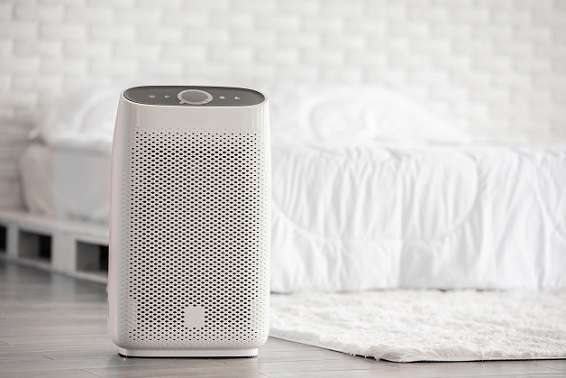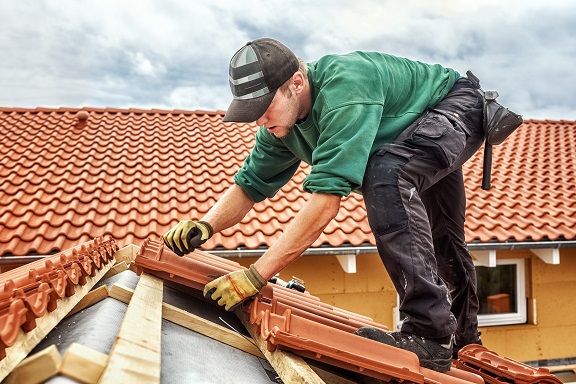An air purifier is an air-cleaning device designed to reduce air contaminants in your room and improve indoor air quality. These machines refresh stale air by removing unpleasant odor, allergens like bacteria, dust, pollens, fungus, smoke, and other toxic chemicals present in the air, which may be hazardous for people who have respiratory and neurological problems.
Although all companies and experts recommend using air purifiers for their extraordinary health benefits, most people are still confused about their effectiveness in reducing dust and other pollutants. If you are looking for more information on air purifiers or other HVAC appliances, consider visiting Clover Services.
What Is Dust Exactly Made Up Of?
Dust is a complex mixture that is made up of solid particles in the environment like pollen or soots, soil (lifted by the wind), skin cells, clothing fibers (carpet/ beddings), dead bugs, pet hair, etc.
Listing out the exact composition of indoor dust is not feasible. But the factors on which the accumulation of household dust depends include
The external environment
Number of family members and staff in a house
Pets
Cooking methods, and the like
It should be noted that more than fifty percent of dust found indoors is generated from external airborne particles. This may include pollens, organic debris, and volatile carbon compounds like arsenic, lead, and pesticides. The rest are sourced from are our skin cells and hair, our pets’ dander and fur, toxic chemicals from cigarette smoke, household cleaning agents, food particles, insects, dust mites, molds from our bedding and furniture.
Can Dust Cause Health Hazards?
If left unattended, dust can cause severe respiratory and other health hazards. Dust can
Lead to difficulty in breathing, especially in people with asthma or other respiratory conditions.
Trigger allergies like sneezing, itching, sore throat, runny noses, wheezing, and watery eyes.
Causes numerous lung diseases like asbestosis, pneumoconiosis, silicosis, etc.
Does An Air Purifier Reduce Dust?
This air treatment mechanism is one of the best options to combat the complications arising due to dust. Dust is practically present everywhere around us, indoors and outdoors. These microscopic allergens cannot be cleaned ordinarily. Even vacuuming may not help in cleaning them up. All of these air purifiers reduce dust, both visible and microscopic.
There are many types of air purifiers in the market to solve our problem such as
Mechanical
Electronic
Carbon activated
UVGI
Ozone generators, etc.
The mechanical filter purifier uses a dense fibrous material or HEPA filter technology. These devices are designed to remove large dust particles and capture the tiniest particles of airborne particulates.
The standard size of a dust particle ranges from 1 to 100 micrometers, and a HEPA filter (High-Efficiency Particulate) is specifically designed to remove small, solid particles larger than 0.3 micrometers from the air. This means the HEPA filter will remove more than 99% of pollutants from the air with utmost precision. As per the standards, a good HEPA filter will have a rating of at least H13 or higher as this filter has the ability to eliminate particles as small as 0.1 microns.
The most advanced air purifiers are constructed with a thin mesh and coarse material called the pre-filter section, which traps more prominent elements like hair and fabric fibers, followed by the HEPA filter, which further captures 99.7% of the unwanted 0.3 micron-sized particles. The technology of assisting the HEPA filter with a pre-filter prevents the latter from becoming dirty, thus providing it an extended life.
Hence, an air purifier designed with such combinations will trap most dust particles and ensure you get clean, breathable air in your home. Thus, air purifiers offer you a healthy, relaxed, and dust-free life.
How Does An Air Purifier Function?
An air purifier functions by circulating air through an internal filtration system. The unhealthy air is pulled in and made to pass through the filters. These filters trap the airborne particles and force the clean air to leave through the exhaust side. The time is taken to purify the air in a room effectively depends on the following factors:
Model and its capacity,
Room-size,
Condition of filters (how much they are clogged), and
Purifier’s CADR rating. (Clean Air Delivery Rate)
How To Choose A Good Air Purifier?
Here are some pro-tips to guide you to choose a good air purifier:
Choose the place where you want to install the air purifier and measure the room- size.
Go through the product specifications of models, especially looking for those where filtering out pollutants specific are mentioned.
Consider the HEPA filter rating (at least gold standard) as well as CADR ratings, if provided.
Don’t forget to check out the noise levels. Go for a low-decibel device.
Compute the maintenance and power consumption costs. It has to be within your budget.
Don’t go for more integrated features until unless required. These unnecessary features unnecessarily increase your cost of purchase.
Frequently Asked Questions
Here are a few commonly asked questions about air purifiers:
Which Is The Best Place To Install An Air Purifier?
Place it where you spend most of your time. This can be your living room or bedroom. Nevertheless, most air purifiers are portable so they can be moved as needed.
How Much Does An Air Purifier Cost?
The cost of an air purifier can range anywhere between $100-$1000. On average, a small size model costs around $150-$399 whereas big sized and more advanced models can go beyond $1000.
How Frequently Do I Need To Change The Filters?
It totally depends on the brand and model one is using. Some models may require a 3-month filter replacement and some last for a year. Generally, most models require a change after 6-8 months. It is advisable to read the manual beforehand.
Endnote
It is very beneficial to have an air purifier as it gets rid of unwanted dust. A branded and high-quality HEPA filter attached air purifier may provide a substantial reduction in dust accumulation. To conclude, air filters are an efficient and cost-effective way of moving towards a healthier lifestyle.








